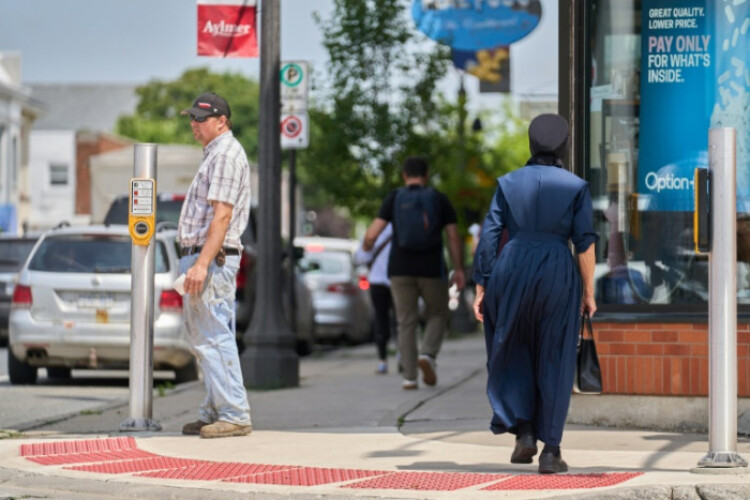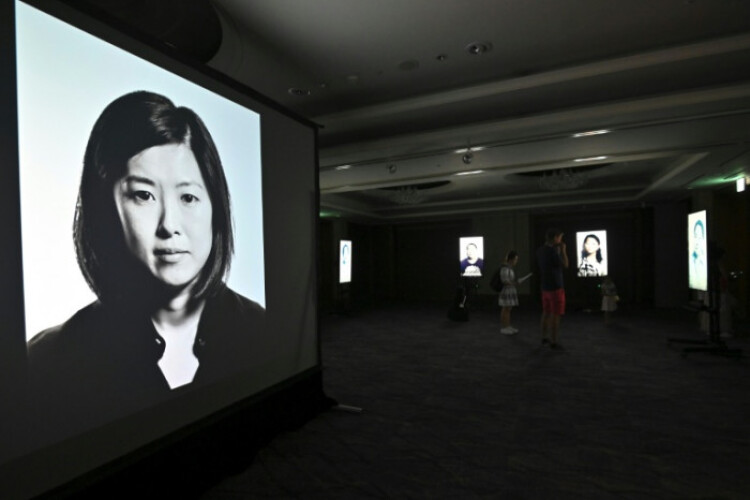
KYODO — Compared with other developed countries, Japan often gets a bad reputation for crimes related to sexual harassment including voyeurism, train molestations and worse.
Societal norms and a culture of silence often hinder reporting and law enforcement. According to an online survey conducted last year by the Cabinet Office, over 10% of people aged 16 to 29 have been groped, mostly on trains. Few reported the incidents.
Some 36,000 people provided responses to the survey, which found that 13.6% of women and 3.6 percent of men said they had been groped or otherwise molested.
The government introduced a psychotherapy program for sex offenders, but the network is still small, and there are many cases of repeat offenders who fail to receive any treatment. Meanwhile, there are few private therapy centres offering programs for sex offenders.
In July 2024, a court in western Japan tried a former Self-Defence Forces member, 38, who was indicted for having sex with an underage girl.
In 2022, the man was fined for a similar incident. When asked his motives by the prosecution, he said, "I became desperate and just didn't care."
He had been on medication for mental illness brought on by work-related stress. However, his issues were never resolved, and his mental state is believed to have contributed to his criminal actions. After his arrest, he became aware of his sexual proclivities and began clinical therapy.
To prevent recidivism, the government in 2006 introduced a cognitive behavioural therapy program for sex offenders in prisons and other institutions. Cognitive behavioural therapy is a type of psychotherapy that helps people identify negative or destructive tendencies or behaviours.
Sex offenders will often interpret a victim as being "thrilled," even though the person clearly abhors such behaviour.
The therapy aims to show that such a "cognitive bias," in which events are misinterpreted, can lead to sexual crimes, and to help offenders understand that their interpretations are wrong.
According to a Ministry of Justice study, the recidivism rate for sex offenders who enrolled in the program within three years of their release from prison was two-thirds that of non-participants.
However, only certain inmates are eligible. Those who receive a suspended sentence without probation or who are fined cannot enrol. Many, like the former SDF member, are let off the hook without knowing how to manage their emotions, only to reoffend.
Daitetsu Kanaya, a clinical psychologist who has treated sex offenders for many years, says offenders who need therapy are falling through the cracks.
Kanaya established a cognitive behavioural therapy centre in Fukuoka in 2020. It provides a 10-month program for groups of two to three people. One patient is a man in his 30s from Fukuoka Prefecture who was in junior high school when he became a peeping tom.
Such behaviour persisted to the point that when he was stressed as an adult, his impulses only intensified, leading to sex crimes involving home invasions and voyeuristic photography, among others.
In 2023, he was questioned by the police and was later fined for trespassing.
His wife said crime was her husband's way of dealing with stress. She persuaded him to begin the therapy at Kanaya's centre.
The man had no idea such a program existed. He said he was able to change to a positive mindset that allowed him to avoid committing further sex offenses.
"I hope anyone struggling with their behaviour will seek treatment as soon as possible and make good use of it," he said.
Kanaya pointed out that Japan stresses demand for remorse from perpetrators, but added, "There is a lack of understanding of clinical treatment that is effective in preventing recidivism."
The Ministry of Justice's program includes a section entitled "Understanding Victims."
Through audiovisual materials and testimonials from victims, the program encourages participants to view their crimes from the perspective of the victims and learn about their impact and responsibility.
However, some studies have shown that encouraging empathy for victims by making sex offenders feel remorse is not effective in preventing further sex crimes. In Canada, Britain and other countries, there are moves to remove such rehabilitation treatment from programs.
The Ministry of Justice, referring to overseas cases, reviewed the pros and cons of dealing with victims' sentiments through a panel of experts. It reaffirmed the notion of apologising to victims as key to social reintegration of offenders.
Kanaya points out that recidivism prevention programs are a complex mix of victim understanding and clinical therapy. Meanwhile, public awareness of treatment options for offenders remains low, and it is believed that there are only a handful of private facilities like his in the country.
"It is important to consider this as a problem for society as a whole from the perspective that anyone can be on either side of the issue, and to develop human resources for rehabilitation and a framework that facilitates consultation," he said.
Societal norms and a culture of silence often hinder reporting and law enforcement. According to an online survey conducted last year by the Cabinet Office, over 10% of people aged 16 to 29 have been groped, mostly on trains. Few reported the incidents.
Some 36,000 people provided responses to the survey, which found that 13.6% of women and 3.6 percent of men said they had been groped or otherwise molested.
The government introduced a psychotherapy program for sex offenders, but the network is still small, and there are many cases of repeat offenders who fail to receive any treatment. Meanwhile, there are few private therapy centres offering programs for sex offenders.
In July 2024, a court in western Japan tried a former Self-Defence Forces member, 38, who was indicted for having sex with an underage girl.
In 2022, the man was fined for a similar incident. When asked his motives by the prosecution, he said, "I became desperate and just didn't care."
He had been on medication for mental illness brought on by work-related stress. However, his issues were never resolved, and his mental state is believed to have contributed to his criminal actions. After his arrest, he became aware of his sexual proclivities and began clinical therapy.
To prevent recidivism, the government in 2006 introduced a cognitive behavioural therapy program for sex offenders in prisons and other institutions. Cognitive behavioural therapy is a type of psychotherapy that helps people identify negative or destructive tendencies or behaviours.
Sex offenders will often interpret a victim as being "thrilled," even though the person clearly abhors such behaviour.
The therapy aims to show that such a "cognitive bias," in which events are misinterpreted, can lead to sexual crimes, and to help offenders understand that their interpretations are wrong.
According to a Ministry of Justice study, the recidivism rate for sex offenders who enrolled in the program within three years of their release from prison was two-thirds that of non-participants.
However, only certain inmates are eligible. Those who receive a suspended sentence without probation or who are fined cannot enrol. Many, like the former SDF member, are let off the hook without knowing how to manage their emotions, only to reoffend.
Daitetsu Kanaya, a clinical psychologist who has treated sex offenders for many years, says offenders who need therapy are falling through the cracks.
Kanaya established a cognitive behavioural therapy centre in Fukuoka in 2020. It provides a 10-month program for groups of two to three people. One patient is a man in his 30s from Fukuoka Prefecture who was in junior high school when he became a peeping tom.
Such behaviour persisted to the point that when he was stressed as an adult, his impulses only intensified, leading to sex crimes involving home invasions and voyeuristic photography, among others.
In 2023, he was questioned by the police and was later fined for trespassing.
His wife said crime was her husband's way of dealing with stress. She persuaded him to begin the therapy at Kanaya's centre.
The man had no idea such a program existed. He said he was able to change to a positive mindset that allowed him to avoid committing further sex offenses.
"I hope anyone struggling with their behaviour will seek treatment as soon as possible and make good use of it," he said.
Kanaya pointed out that Japan stresses demand for remorse from perpetrators, but added, "There is a lack of understanding of clinical treatment that is effective in preventing recidivism."
The Ministry of Justice's program includes a section entitled "Understanding Victims."
Through audiovisual materials and testimonials from victims, the program encourages participants to view their crimes from the perspective of the victims and learn about their impact and responsibility.
However, some studies have shown that encouraging empathy for victims by making sex offenders feel remorse is not effective in preventing further sex crimes. In Canada, Britain and other countries, there are moves to remove such rehabilitation treatment from programs.
The Ministry of Justice, referring to overseas cases, reviewed the pros and cons of dealing with victims' sentiments through a panel of experts. It reaffirmed the notion of apologising to victims as key to social reintegration of offenders.
Kanaya points out that recidivism prevention programs are a complex mix of victim understanding and clinical therapy. Meanwhile, public awareness of treatment options for offenders remains low, and it is believed that there are only a handful of private facilities like his in the country.
"It is important to consider this as a problem for society as a whole from the perspective that anyone can be on either side of the issue, and to develop human resources for rehabilitation and a framework that facilitates consultation," he said.










